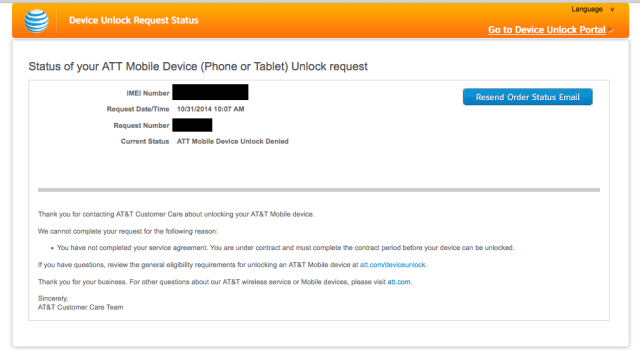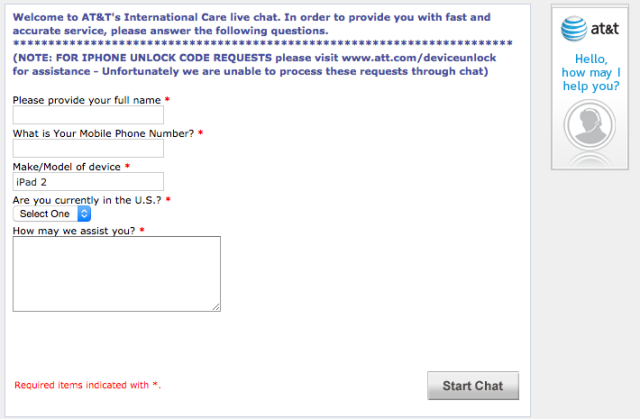Watching Steve Jobs unveil the original iPhone in 2007, I knew that I had to have one. Seriously, if you’ve never watched Jobs’ Macworld keynote where he took the covers off the iPhone, it’s worth at least viewing the highlights. It’s a masterwork presentation and Jobs is in absolute top form, playing the audience like a piano (in spite of how shaky things were behind the scenes). When it launched in June 2007, the only way to get an iPhone was to sign up for service with AT&T. As a Cingular customer about to become an AT&T customer, this posed no issues for me at all. I happily entered into a long-term relationship with the company.
For the most part, it’s been a happy marriage since. In spite of a rate structure more complicated than the Voynich manuscript and a nasty habit of replacing unlimited data plans with metered plans that are "better values," I was happy with the actual cellular service. Coverage was good. Speeds in Houston were great, especially in my particular corner of Clear Lake, where Verizon’s coverage was essentially nonexistent for many years.

And so, I rode the upgrade treadmill, happily buying new devices every few years, unconcerned about the continual contract renewals because I had no intention of changing providers. Why switch? The carriers are all essentially identical dumb pipes, and most other carriers’ post-paid plans cost essentially the same—I’d done the math.
Then, on Halloween, my relationship with AT&T suffered a death-blow.
I’ve got some international travel coming up. Later this month, I’ll be off to Germany for a week or so to enjoy beautiful Munich and drink a lot of beer and eat a lot of schnitzel. While there, obviously I’d like to be able to use my smartphone. I could take an unlocked Nexus of some sort with me to serve as my temporary travel device, popping in a pre-paid SIM card from a local shop, but I figured that the easiest thing to do would be to simply have AT&T unlock my iPhone 5S so I can just take my normal device with me and not have to worry about managing a temporary one. Just from a practical standpoint, this made the most sense. I had no intention of taking my newly unlocked iPhone and jumping to a different carrier once I returned—why disrupt a good thing? I was happy with AT&T.
I did some Googling to see what the best way forward was. Google quickly informed me that AT&T was becoming stingy with unlocks for post-paid devices on contract—unlike other carriers, which were anecdotally very lenient (or, like Verizon, had simply stopped selling locked devices in the first place). Nonetheless, a common thread among forum posts was that international travel was a perfectly fine reason to request and unlock and that AT&T would typically grant such request. I figured I was fine.
AT&T has an automated unlock request portal, so I tried that first. Unsurprisingly, within a minute of putting in my automated unlock request, the portal informed me that the request was denied:

"You have not completed your service agreement," it said. "You are under contract and must complete the contract period before your device can be unlocked."
Nothing that a quick talk with customer service can’t clear up, I naively thought. I popped over to AT&T’s site and started up a customer service live chat session. However, the live chat window opened with a banner informing me that unlock requests weren’t something a live chat agent would be able to help with.

Unconcerned, I picked up the phone and dialed AT&T’s customer service line. I still figured that like so many other technical glitches and hiccups this was something I could resolve quickly by talking to a human being.
Held hostage
The best way to get what you want out of a customer service agent is to call up and be exceedingly polite, while adopting an attitude I like to call "light befuddlement." You don’t want to seem like an idiot—nothing arouses the ire of a customer service agent, especially one doing tech support, like dealing with someone who can’t find the power button on whatever gadget they’re calling about. On the other hand, you often don’t want to outright say what you think is wrong or exactly what you’re trying to get done—that pigeonholes the agent, and sometimes makes them angry. After all, if you knew what was wrong, why are you calling in for help? By acting just a little bit dazed ("I’m not sure what’s wrong, but man, I really appreciate how awesome you are and how much help you’re giving me!") you can usually guide things in the right direction and let the agent think the desired outcome is their idea, rather than yours.
When I got through to support, I told the agent what I was trying to do—unlock a phone for international travel—and that the automated portal was giving me a denial and I wasn’t sure where to go from there. I didn’t outright say, "Please just press the magic button in front of you and unlock the phone," but I presented the situation like an easy problem to be solved: I’m trying to do this and it should work, but the automated system won’t let me. Can’t you please help?
The agent was quite understanding and said that international travel was a perfectly fine reason to request an unlock, but that he had to send me to a different department—again, not terribly unexpected. I waited on hold while he transferred me to another person—his name was Josh—and I explained what was going on.
I’ll hand it to Josh: after identifying that my problem was that I was still under contract, he investigated and dug around hard for a solution. But after several minutes he told me that AT&T’s policy was that a phone under contract couldn’t be unlocked. My only option was to pay an early termination fee of $195, at which point my contract would be canceled and I could request an unlock.
I was extremely disappointed by this. Other carriers are more lenient, and AT&T’s refusal to unlock my phone boggled me. Didn’t they realize that unlocking my device to keep me happy was in their best interest and that I wasn’t going to flee to the arms of another carrier the instant the chain was off? After all, the locked or unlocked status of the phone does nothing at all to alter the underlying terms of the actual contract I signed with AT&T—whether or not the phone is usable overseas, I'd still remain an AT&T customer with an obligation to serve out my term.
I told Josh that I needed some time to consider whether or not I wanted to accept the early termination fee option and he helpfully offered to call me back in about 30 minutes.
reader comments
442